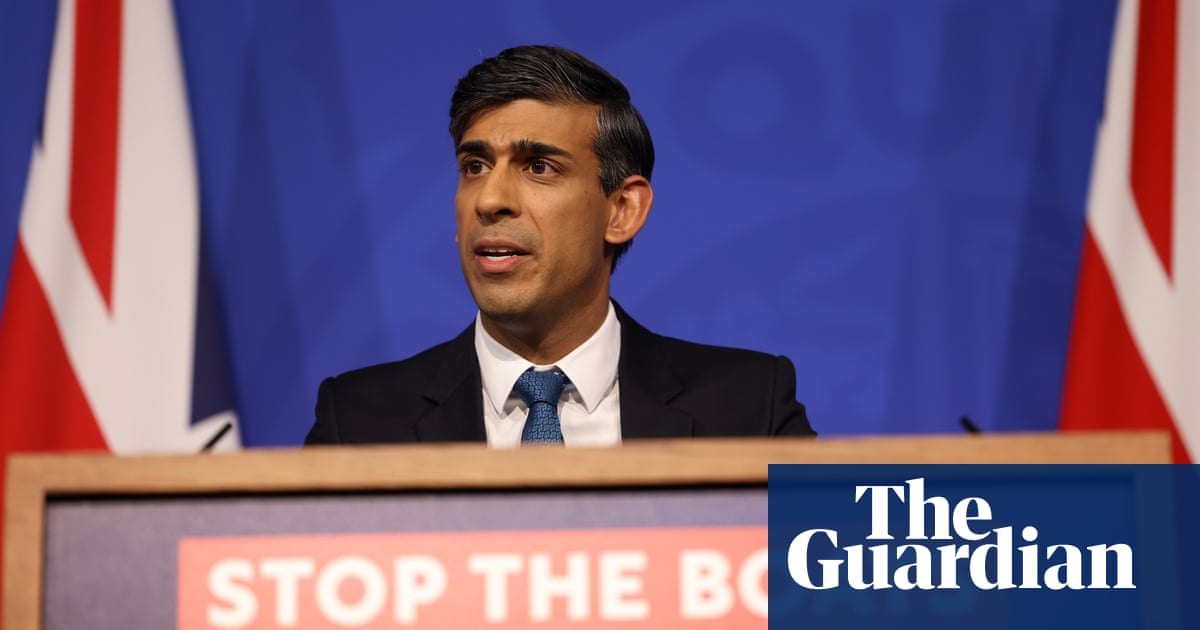
UK government lawyers are preparing to take Nicola Sturgeon’s administration to the supreme court over new legislation embedding the UN convention on children’s rights into Scottish law.
Ministers accuse the Scottish government of unlawfully trying to control and limit Westminster’s powers after passing the legislation at Holyrood earlier this month, triggering a fresh constitutional battle over Scotland’s powers weeks before the May elections.
Within the next two weeks, lawyers acting for the UK government are expected to apply for a hearing to rule on whether the United Nations convention on the rights of the child (incorporation) (Scotland) bill is lawful.
Alister Jack, the Scottish secretary, wrote to John Swinney, the deputy first minister, arguing the bill was in breach of the Scotland Act which set up the devolved parliament, by letting MSPs and Scottish courts control UK-wide legislation reserved to Westminster.
Jack said the UK government was “deeply committed” to protecting children’s rights– Westminster had numerous acts which embedded those rights in law and the UK signed the convention itself in 1991.
The UK government was also likely to send another piece of new Holyrood legislation, the European charter of local self-government, to the supreme court, arguing it too unlawfully affected UK legislation.
“Our concerns with these bills are not based on policy. They have nothing whatsoever to do with the substance of the bills,” Jack said.
“It is for the Scottish government to set policies in devolved areas, but the Scottish parliament does not have the power to constrain the UK parliament in the way that it legislates for Scotland. Nor can it place legal obligations on UK government ministers acting in reserved areas.”
Swinney indicated the Scottish government would fight that in the supreme court. He said the changes demanded meant “crucial provisions” would not apply to major pieces of legislations such as the Children (Scotland) Act 1995, the Education (Scotland) Act 1996 and the Children and Young Persons (Scotland) Act 1937.
“All parts of the [UN Convention on the Rights of the Child] bill are within the legislative competence of the Scottish parliament,” Swinney said.
“The changes proposed by the UK government would significantly undermine the protection for children’s rights in Scotland that the bill seeks to put in place, threatening to undercut both the important measures contained in the legislation and key principles of devolution.”
Holyrood’s presiding officer, Ken Macintosh, cleared the bill as legislatively competent when it was first published, but the Law Society of Scotland has objected to some clauses, arguing they are ultra vires (“beyond the powers”). The society drafted amendments to the bill for the Scottish Tories that Swinney rejected earlier this month.
UK government sources suspect Swinney is happy to have a constitutional battle over Holyrood’s powers as it will fuel the independence debate. Swinney insists UK legislation has a significant impact in Scotland and needs to be made fully compatible with international conventions.
Andy Wightman, the independent MSP who drafted the local self-government bill, said: “These two bills are the first in the history of devolution to incorporate international treaties into Scots law. It is vital the Scottish parliament has the power to reflect our international obligations in law.
“If the UK government’s law officers are successful [in court], it is imperative the Scotland act is amended to allow Holyrood the freedom to legislate on such matters.”












